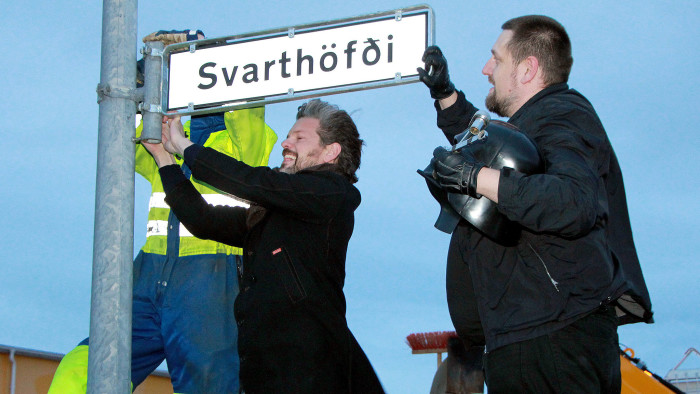The world watches Reykjavik’s digital democracy experiment

Roula Khalaf, Editor of the FT, selects her favourite stories in this weekly newsletter.
When Iceland’s banks collapsed and mistrust of politicians soared during the 2008 financial crisis, two programmers thought software could help salvage the country’s democracy.
They created Your Priorities, a platform that allows citizens to suggest laws, policies and budget measures, which can then be voted up or down by other users.
“We thought: If we manage somehow to connect regular citizens with government then we create a dialogue that will ultimately result in better decisions,” says Robert Bjarnason, chief executive of Citizens Foundation, the company that created Your Priorities.
Mr Bjarnason and his fellow co-founder of Citizens Foundation, Gunnar Grimsson, used the software to create a policy website called Better Reykjavik just before the city’s 2010 elections.
Jon Gnarr, Reykjavik’s then mayor, encouraged people to use the platform to give him policy suggestions and he committed to funding the top 10 ideas each month. Seven years on, Better Reykjavik has some 20,000 users and 769 of their ideas have been approved by the city council.
These include increasing financial support for the city’s homeless, converting a former power station into a youth centre, introducing gender-neutral toilets and naming a street after Darth Vader, the character from Star Wars.
Your Priorities has also been tested in other countries, including Estonia, Australia, Scotland, Wales, Norway and Malta. In Estonia, seven proposals have become law, including one limiting donations from companies to political parties and another that requires the national parliament to debate any proposal with more than 1,000 votes.
The software is part of a global trend for people to seek more influence over their politicians. In Australia, for example, the MiVote app allows people to vote on issues being debated in parliament.
“Politics has hit a wall [with] representatives isolated from the people,” says Halldor Svansson, a member of the anti-establishment Pirate Party who sits on Reykjavik’s city council. “We get voted in, then we do our thing and never involve the public in what we are doing,” he says.
“Those times are past. This was the main idea behind the project — [to create] a platform for reasonable discussion that would be able to influence politics, in a structured way.”
Technology, however, cannot solve every problem, says Mr Gnarr, who adds that he was disappointed the software did not attract as many young people as was hoped. Apathy over politics, especially at the local level persists.
“I was hoping [Better Reykjavik] would be the perfect solution,” he says. “It may not be, but it is one of the many solutions to the crisis of democracy and a way to get people to vote.”
At times, the portal can become a “crazy sounding board” Mr Svansson concedes. The Reykjavik council has put in quality controls to filter out hare-brained proposals, although Mr Bjarnason says he has had to remove inappropriate content only a handful of times.
Citizens Foundation is funded largely by the city of Reykjavik and the EU. In 2011, the organisation launched Better Neighbourhoods, a portal that allows citizens to control a portion of Reykjavik’s infrastructure budget. Some €18m, or 6 per cent of the city budget for this year, has been allocated to be spent through Better Neighbourhoods.
The city government is also using Your Priorities to allow high school students to help design their curriculum.
Ideas so far include teaching meditation in schools and overhauling IT courses.
During Iceland’s parliamentary elections last month, 10 out of 11 political parties published their election pitches on Your Priorities, allowing voters to comment on policies and propose new ones. This interactive manifesto website attracted 22,000 visitors.
Testing the efficacy of platforms such as Your Priorities is perhaps easier in Reykjavik — population 123,000 — than in larger cities. Even so, integrating the site into the council’s policymaking apparatus has been slower than Mr Bjarnason had foreseen.
“Everything takes a long time and sometimes it is like you are swimming in syrup,” he says. “Still, it has been a really good experience working with the city.”

Comments